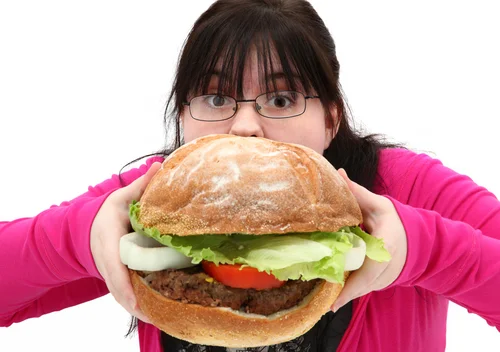+1 845 259 2974 (11 a.m to 7 p.m CST)
The Scary Connection Between Peer Pressure and Obesity Among Teens

Peer pressure is a powerful influence on teenagers as they navigate their formative years. While it is often associated with risky behaviors like smoking or drinking, its impact on physical health is equally concerning. Peer pressure can lead to unhealthy lifestyle choices that contribute to obesity, a growing issue among teens. Let’s explore the alarming connection between peer pressure and teenage obesity in detail.
What Is Peer Pressure?
Peer pressure is the influence exerted by a peer group to encourage certain behaviors or choices. For teenagers, who are often trying to fit in and gain social acceptance, the pull of peer pressure can be overwhelming. This influence can manifest in various ways, from adopting certain fashion trends to making lifestyle decisions.
In the context of health, peer pressure can lead teens to adopt habits that harm their well-being. When a teen’s desire to belong overshadows their judgment, they may make choices that negatively affect their physical and mental health. Peer influence is particularly potent during adolescence because teens are still forming their identities and are often more susceptible to external validation.
How Peer Pressure Leads to Obesity
Unhealthy Eating Habits
Teen social interactions frequently involve food, whether it’s hanging out at fast-food joints or indulging in junk food during sleepovers. While sharing meals can foster bonding, it can also encourage poor eating habits. When the majority of a peer group indulges in unhealthy food choices, it becomes challenging for a teen to opt for healthier alternatives.
For instance, a teen might feel embarrassed to bring a packed lunch to school or order a salad at a restaurant when their friends are choosing burgers and fries. Over time, consistently consuming high-calorie, low-nutrient foods can lead to significant weight gain and other health issues.
Teen obesity isn't just a matter of peer pressure. Access to professional guidance can make a difference. Though teens tend to adopt poor health habits, engaging with family nutrition specialists who are well-versed in holistic dietary planning can foster healthier lifestyles. They offer individualized plans covered by insurance that encourage both teens and families to develop lasting nutritious eating practices.
Sedentary Lifestyles
Peers not only influence what teens eat but also how they spend their time. Many teenage friend groups prefer sedentary activities like playing video games, binge-watching TV shows, or scrolling through social media. While these activities can be fun, they significantly reduce the time spent on physical exercise.
A teen who wants to be part of the group may forgo outdoor activities like sports or walks in favor of sitting with friends. This lack of movement, coupled with unhealthy eating, creates a perfect storm for weight gain. Regular exercise is vital for maintaining a healthy weight, and when teens miss out on it, their risk of obesity increases.
Body Image Pressure
Paradoxically, peer pressure can also push teens toward unrealistic body image goals. Some friend groups or social circles idolize certain body types, which can lead teens to adopt harmful behaviors like crash dieting. While these extreme measures may lead to short-term weight loss, they often result in long-term weight gain as the body struggles to maintain a healthy metabolism.
Additionally, teens who feel insecure about their bodies might turn to emotional eating for comfort, especially if they experience bullying or teasing from their peers. This vicious cycle of poor self-esteem and unhealthy eating can significantly contribute to obesity.
Social Media Trends and Challenges
Social media plays a central role in shaping teen behavior today. From food challenges to trending recipes, teens are constantly exposed to content that glamorizes unhealthy eating. For instance, viral challenges that involve consuming large quantities of food or trying calorie-dense recipes can normalize overeating.
Social media also reinforces peer pressure by showcasing images of "perfect" lives, where teens might feel the need to emulate what they see, including food and lifestyle choices. Unfortunately, this often results in adopting habits that are detrimental to their physical health.
Why Obesity Among Teens Is Concerning
Obesity is a serious issue that extends beyond weight gain. The physical and emotional effects of obesity can have lasting consequences, making it a significant public health concern.
Health Risks
Obesity in teens increases the risk of developing chronic health conditions such as diabetes, high blood pressure, and heart disease. These health problems, often associated with adulthood, are now being observed in younger populations due to rising obesity rates. Additionally, carrying excess weight puts unnecessary strain on the bones and joints, which can lead to mobility issues later in life.
Emotional and Social Impact
Obese teens are often subject to bullying and teasing, which can lead to low self-esteem and depression. They may feel excluded from social activities or be reluctant to participate in physical events due to their weight. This emotional toll can further exacerbate unhealthy habits, creating a cycle that is difficult to break.
Long-Term Consequences
Teens who struggle with obesity are more likely to remain obese as adults. This continuity increases their risk of developing severe health conditions, reducing their overall quality of life. Moreover, the habits formed during adolescence often carry into adulthood, making it crucial to address obesity early on.
How Parents and Schools Can Help
Encouraging Open Communication
Parents play a critical role in helping teens navigate peer pressure. By fostering an environment where teens feel comfortable discussing their struggles, parents can offer guidance and support. Teens need to know they can express themselves without fear of judgment. Open communication builds trust and helps teens resist negative peer influences.
Promoting Healthy Eating
Schools and parents should make a concerted effort to promote healthy eating habits. Introducing nutritious meals in school cafeterias and educating teens about the importance of balanced diets can make a significant difference. Parents can also lead by example by preparing healthy meals at home and involving teens in the cooking process.
Encouraging Physical Activity
Physical activity is essential for maintaining a healthy weight. Schools can offer more sports and extracurricular activities to keep teens engaged in active pursuits. Parents can encourage family fitness activities like hiking, cycling, or even regular walks. These shared experiences not only promote health but also strengthen family bonds.
Teaching Media Literacy
Educating teens about the impact of social media can help them make informed decisions. Teaching them to critically evaluate trends and recognize unrealistic content can reduce their susceptibility to harmful influences. Media literacy empowers teens to focus on their well-being rather than chasing superficial ideals.
Fostering Positive Peer Groups
Encouraging teens to build relationships with like-minded, health-conscious peers can significantly reduce negative peer pressure. Positive peer groups can motivate teens to make healthier choices, whether it’s through participating in sports or choosing nutritious meals together.
The connection between peer pressure and obesity among teens is both alarming and preventable. Peer influence plays a significant role in shaping teens’ lifestyles, often steering them toward unhealthy choices. By understanding the causes and effects of this issue, parents, schools, and communities can work together to guide teens toward healthier, more balanced lives. Early intervention and consistent support are key to breaking the cycle of obesity and ensuring a brighter, healthier future for our teens.





















